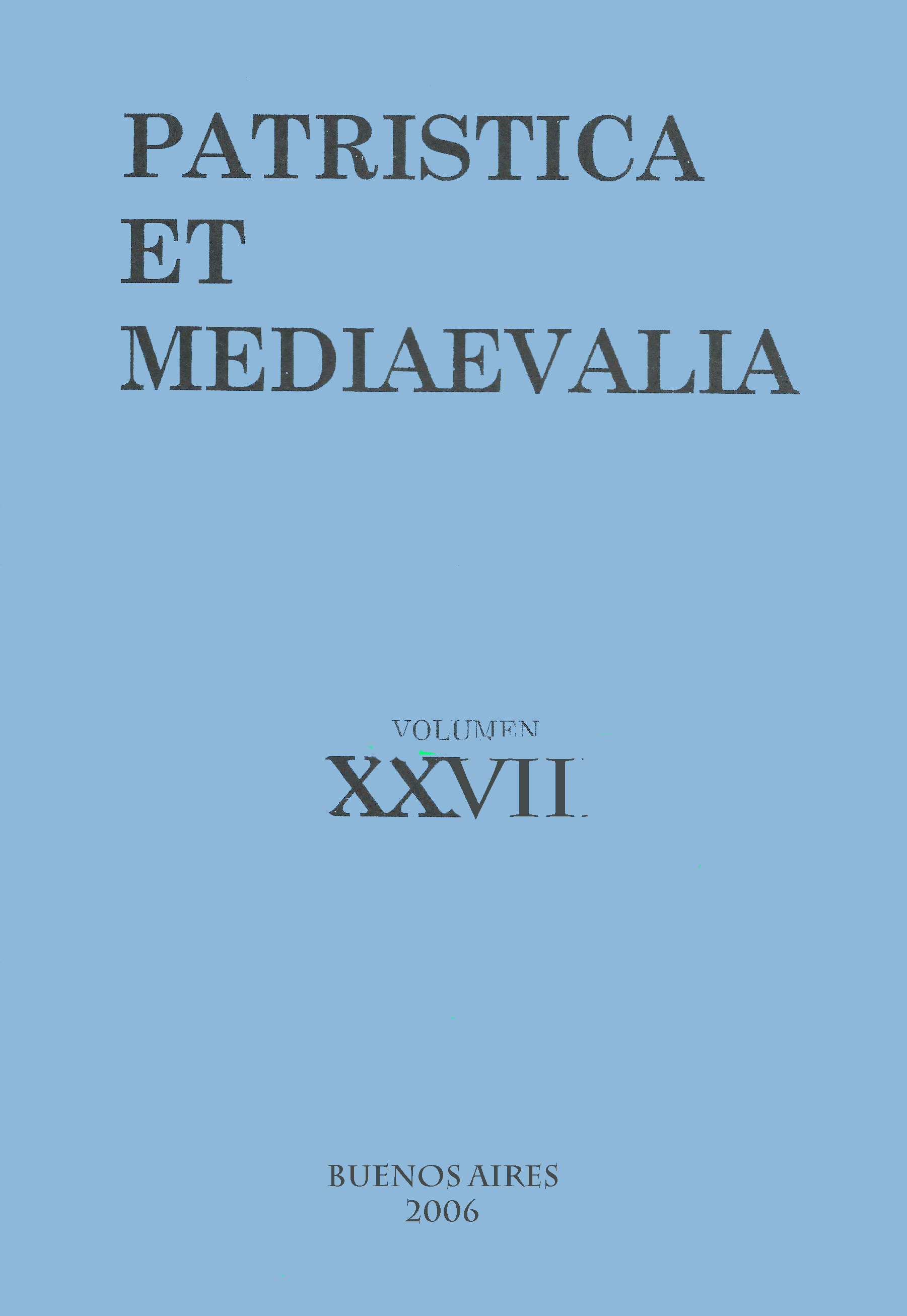Thomas Aquinas and the "Conditions Of Possibility" of a Natural Science: the Efficiency of Second Causes
Abstract
In Summa contra gentiles III 69, Thomas Aquinas engages in a polemic with a group of authors that have in common the fact that they “subtract their proper actions from natural things”, and among which we find some Muslim theologians (Mutakallims), Avicebron and Avicenna. In all of them we recognize a general tendency to attribute every causal power to God, to the extent that no margin of action at all is left to corporeal beings. The general principle underlying these doctrines is that what is active is spiritual and immaterial; correlatively, what is corporeal and material is regarded as rather passive. Among the inconveniences or difficulties derived from these doctrines, Aquinas points out some arguments that depart from the regularity of the world of experience and from the features of our knowledge of nature. In this theological polemic against Occasionalism and Neoplatonism, Aquinas elaborates a discourse on the “conditions of possibility” of the natural science –that is to say, the Aristotelian physics–. All this shows that Thomas tries to draw, by means of a philosophical synthesis of different sources, a creationist metaphysics compatible with the Aristotelian philosophy of nature.Downloads
References
Castello Dubra, J. (2006). Algunos aspectos de la crítica de Tomás de Aquino al ocasionalismo musulmán y al neoplatonismo. En Jornadas de Filosofía Patriótica y Medieval: Cuestiones de Antropología y Ética. Rosario.
De Muralt, A. (1990). L’enjeu de la philosophie médiévale. Leiden: Brill.
Elders, L. (ed.) (1982). La philosophie de la nature de Saint Thomas d’Aquin (Actes dy Symposium sur la pensée de Saint Thomas: Rolduc, 7-8 Nov. 1981). Città del Vaticano: Libreria Editrice Vaticana (Studi tomistici, 18).
Elders, L. (1994). La philosophie de la nature de Saint Thomas d’Aquin. Paris: Pierre Téqui.
Fernández, C. (2004). Tres aproximaciones medievales al problema filosófico de la causalidad. Anales de estudios clásicos y medievales, 1, 91-104.
Ferrandi, M. (2003). L’action des créatures, L’occasionnalisme et l’efficace des causes secondes. Paris: Pierre Téqui.
Freddoso, A. J. (1988). Medieval Aristotelianism and the Case against Secondary Causation in Nature. In Morris, Th. V. (ed.). Divine and Human Action: Essays in the Metaphysics of Theism. Ithaca/New York: Cornell University Press, 74-118.
Gilson, E. (1926/27). Pourquoi Saint Thomas a critiqué Saint Augustin. Archives d’Histoire Doctrinale et Littéraire du Moyen Âge, 1, 5-127.
Weisheipl, J. (1985). Nature and Motion in the Middle Ages. Washington: The Catholic University of America Press.
1. The authors who publish in this magazine accept the following conditions:
-
They retain the copyright and grant to the magazine the right of the first publication, with the work registered under the Attribution-ShareAlike 4.0 International License that allows third parties to use what is published as long as they mention the authorship of the work and the first publication in this magazine.
-
They can make other independent and additional contractual agreements for the non-exclusive distribution of the version of the article published in this magazine (eg. include it in an institutional repository or publish it in a book) provided that they clearly indicate that the work was first published in this journal.
-
They are allowed and recommended to publish their work on the Internet (for example on institutional or personal pages).
2. AutoArchive Conditions. Authors are allowed and encouraged to distribute post-print electronic versions of their manuscripts because it promotes their circulation, a possible increase of quotation and a major reach among the Academic community. Color RoMEO: blue.













